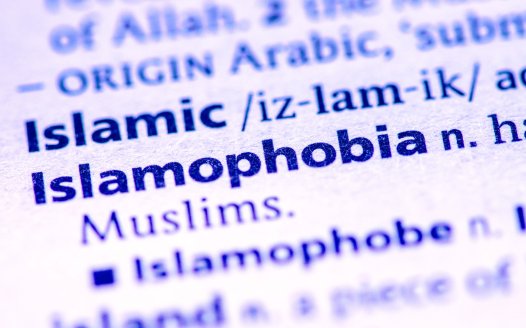NSS calls for better free speech protection in NI hate crime reform
Posted: Tue, 22nd Mar 2022
The National Secular Society has warned proposed reforms to Northern Ireland's hate crime laws could undermine free speech.
The Department of Justice (DoJ) is consulting on a new Hate Crime Bill for NI based on recommendations made by Judge Desmond Marrinan in 2020. It includes proposals that would broaden the definition of hate crime, create a new aggravated offence for sectarian hate crimes, and potentially expand 'hate speech' laws to cover online content.
Free speech concerns and 'stirring up' offences
In its response, the NSS said "a vibrant civil society with robust freedom of expression" is best placed to tackle hate crime and hate speech.
It expressed specific concerns about proposals that would expand NI's 'stirring up hate' offences, which criminalise "threatening, abusive or insulting" forms of expression that are "likely" to stir up hatred or fear against particular protected groups, including those defined by "religious belief".
The DoJ proposes to replace the 'dwelling defence', which protects private speech within homes, with a 'private conversation defence' for the 'stirring up' offenses.
The DoJ said this would make it easier to apply the 'stirring up' laws to online content.
But the NSS said it saw "no compelling case" for removing the dwelling defence. It said the DoJ should instead create additional protections for other private conversations.
The NSS said the proposal to replace the dwelling defence "does not address serious free speech issues" posed by 'stirring up' offences, which would be "exacerbated" if these offences were expanded to cover online material more broadly.
The NSS highlighted the lack of free speech protections for discussions about religion or belief, which are present in counterpart legislation in other UK nations. Similar 'stirring up' offenses were introduced in Scotland's Hate Crime Bill last year, but key amendments added following lobbying by the NSS and other organisations help protect freedom of expression regard religion.
Judge Marrinan said there should be "no express defences for freedom of expression in relation to religion, sexual orientation or any other of the protected characteristics." In 2021 he implied 'abusing religion' should not be legal.
The NSS said the lack of protections for robust criticism or ridicule of religion poses free speech concerns for both religious and non-religious people alike.
Moreover, the law does not require intent for a person to be guilty of a 'stirring up' offence. It is sufficient that "hatred is likely to be stirred up or fear is likely to be aroused" by a person who uses, publishes or distributes "threatening, abusive or insulting" words.
The NSS said this is likely to "encourage censorship and chill free speech" on controversial issues, including the reporting of facts that highlight negative aspects of religion.
It also expressed concerns that the 'stirring up' offences only refer to "religious belief" as a protected group, excluding those who are nonreligious.
NI blasphemy laws
The NSS said it was "disappointed" the proposals did not include abolishing NI's blasphemy laws.
NI is the only jurisdiction in the UK with blasphemy laws. England and Wales repealed their blasphemy laws in 2008. Scotland repealed them last year via the Hate Crime Bill.
The NSS said there is "always the risk" the blasphemy laws may be invoked to silence criticism or ridicule of religion, and that their presence in NI "undermines efforts to repeal blasphemy laws worldwide". Blasphemy laws are widely used to persecute religious minorities, the non-religious and those who speak out against the status quo.
Strategies for combatting hate and sectarianism
The NSS proposed alternative strategies for tackling hate and division. These include reforming NI's education system which "divides young people along harmful, obsolete sectarian lines".
It expressed support for the Integrated Education Bill, which places a statutory duty on the Department of Education to provide further support to the integrated schools sector.
It said any plans to include sectarianism in hate crime legislation should be 'future proofed' to include non-Christian forms of sectarianism, including anti-Ahmadi Muslim hate and caste-based discrimination.
The NSS also said NI needs to crack down on charities promoting extreme and intolerant views. This includes Core Issues Trust, an organisation which is a registered charity in NI despite promoting homophobic "change orientated therapy" for gay people.
NSS comment
NSS chief executive Stephen Evans said: "Northern Ireland already has the most restrictive speech laws in the UK. Plans to further criminalise 'hate speech' online, coupled with the absence of free speech protections for robust discussion around religion, show an alarming disregard for freedom of expression.
"Laws prohibiting the 'stirring up of hatred' should always be accompanied by explicit and unambiguous protections for free speech so that we can all be clear that people are free to say and publish things that others may find offensive or insulting.
"It is also a huge disappointment that the proposals fail to include the abortion of NI's archaic and illiberal blasphemy laws.
"It should never be a criminal offence anywhere to offend religious sensibilities. Unfortunately, the proposed reforms are likely to increase censorship and chill free speech around religion for fear of falling foul of the law."
The consultation closes on Monday.
Freedom of Expression
Democracy cannot exist without the right to free speech. Join our campaign to protect freedom of expression from religious incursions.








